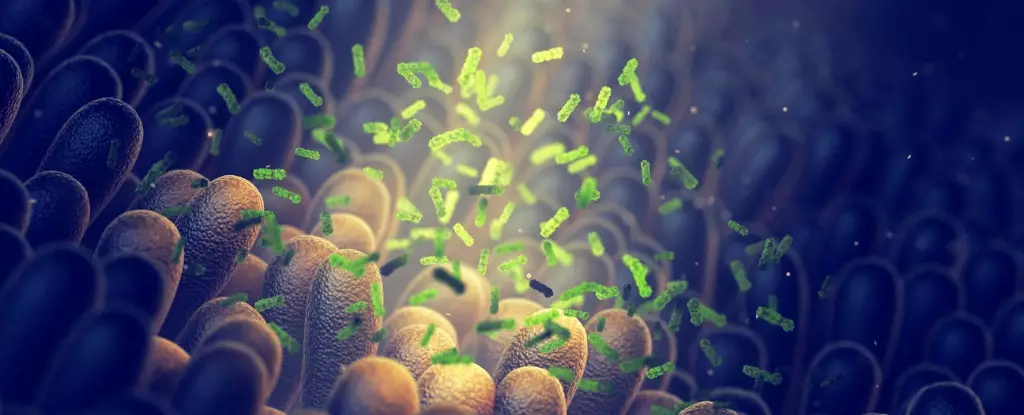In the ongoing battle against antibiotic-resistant bacteria, researchers have shifted their focus towards the human gut as a potential source of new antibiotics. With the alarming rate at which bacteria are outmaneuvering existing drugs, the need for novel solutions is more urgent than ever. By investigating the complex environment of the human gut, which houses approximately 100 trillion microbes, scientists hope to discover new ingredients that can combat infectious diseases.
A study conducted by researchers in the United States involved analyzing gut microbiomes from 1,773 individuals. They identified 444,054 proteins with potential antibiotic properties and synthesized 78 promising candidates for further testing. Remarkably, 70.5 percent of these proteins demonstrated the ability to combat bacteria in laboratory experiments. This suggests that the human gut harbors a diverse array of substances that could be utilized in the development of antibiotics.
Among the most intriguing proteins identified was prevotellin-2, which exhibited antibacterial capabilities comparable to polymyxin B, a widely used antibiotic for drug-resistant infections. This discovery highlights the promising nature of mining the human microbiome for antimicrobial peptides. Physician-scientist Ami Bhatt from Stanford University emphasizes the significance of these findings, stating that exploring new classes of antimicrobial compounds from the gut could greatly benefit patients in need of effective treatments.
Although there is still much work to be done in converting these proteins into practical antibiotics, the initial results are highly encouraging. Moreover, the unique composition of these proteins suggests a potential for developing novel antimicrobial molecules that differ from traditional antibiotics. Bioengineer Marcelo Torres emphasizes the importance of expanding the sequence space of antimicrobials by leveraging these groundbreaking discoveries.
Traditionally, the process of discovering antibiotics from natural sources outside the human body has been time-consuming and labor-intensive. However, researchers like César de la Fuente are exploring alternative approaches to expedite antibiotic activation. Given the urgency of the antibiotic resistance crisis, there is a pressing need for innovative solutions that can keep pace with rapidly evolving bacteria.
The rampant misuse of antibiotics and the environmental impact of human activities have exacerbated the global threat of antibiotic resistance, leading to millions of deaths each year. Scientists around the world are dedicated to finding new ways to combat this growing problem, but the race against time remains a formidable challenge. The findings from this study support the hypothesis that the human gut, as a dynamic and competitive environment, holds the key to developing targeted drugs that can tackle infections effectively.
The human gut microbiome represents a valuable source of potential antibiotics that could revolutionize the field of infectious disease treatment. By harnessing the power of nature’s own defenses and uncovering novel antimicrobial compounds, researchers are paving the way for a new era of antibiotic development. The complexities of the gut ecosystem offer a treasure trove of opportunities for combating antibiotic resistance and saving lives in the face of formidable bacterial foes.


Leave a Reply